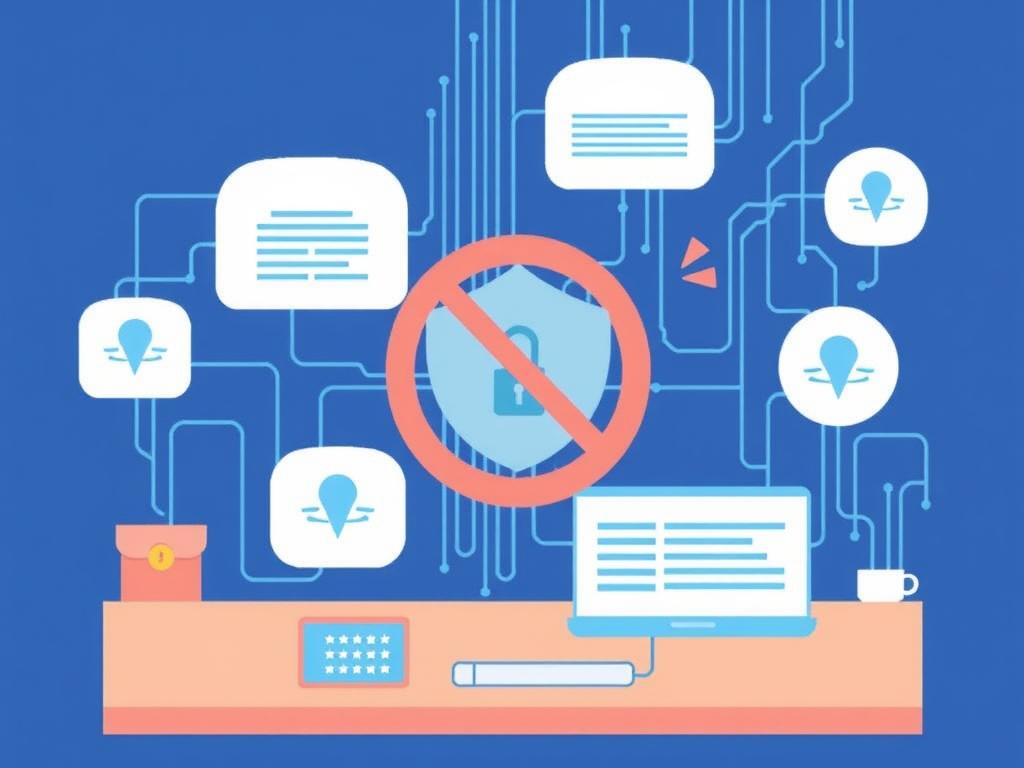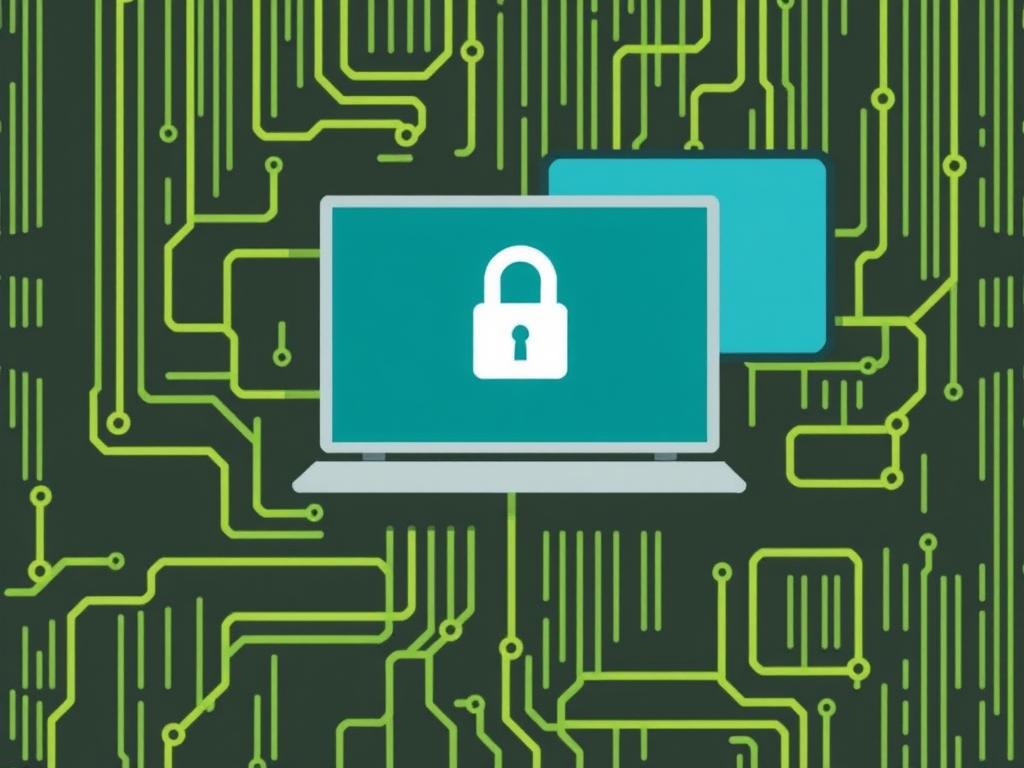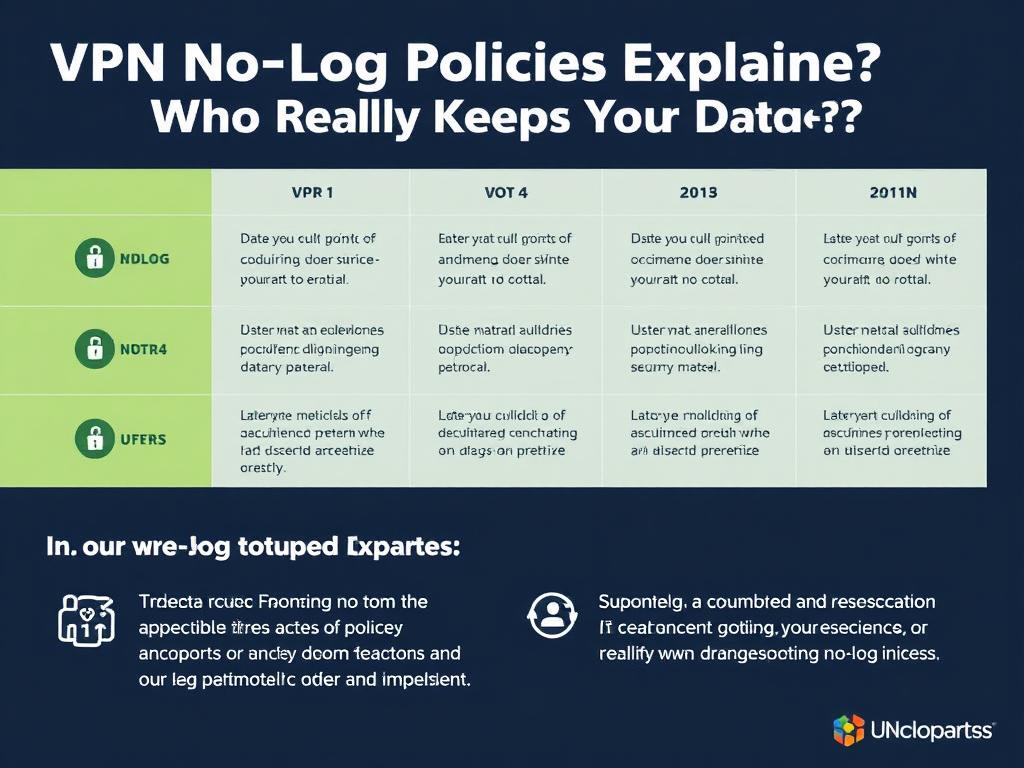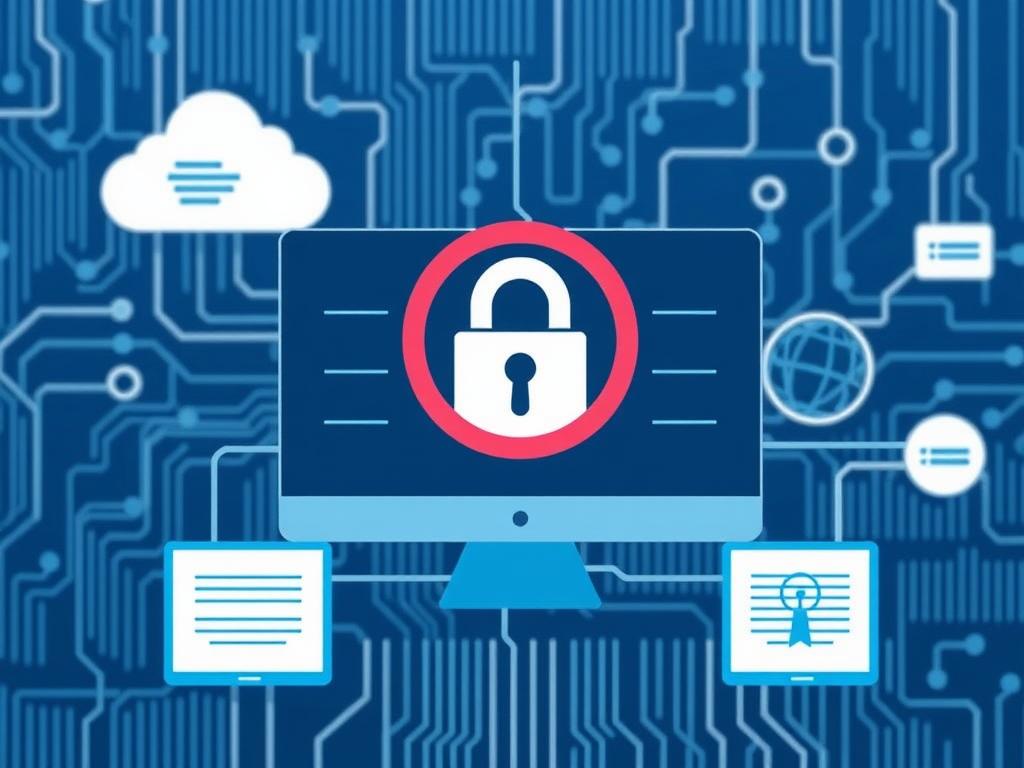In today’s digital age, privacy has become a hot topic. More and more people are turning to VPNs, or Virtual Private Networks, to protect their online activities from prying eyes. When choosing a VPN, one of the most important promises you’ll hear is their “no-log policy.” But what does that actually mean? Can you really trust a VPN provider that says they don’t keep logs? Understanding VPN no-log policies is crucial if you want to ensure your data stays private. In this article, we will break down the concept of no-log policies, explore who really keeps your data, and help you learn how to choose a VPN you can trust.
What Is a VPN No-Log Policy?

A VPN no-log policy refers to a provider’s commitment not to collect, store, or track any information about your online activity while you are connected through their servers. This means that the VPN is supposed to keep your browsing history, IP address, connection timestamps, and any other personal data completely private. The idea is simple: if the VPN company doesn’t keep logs, they can’t hand over your data to third parties, governments, or hackers because there is nothing to give.
However, VPN no-log policies can vary widely, and the term itself isn’t regulated. Some providers may claim a “no-logs” policy but still collect certain types of data, such as connection timestamps or bandwidth usage, which can indirectly reveal user behavior.
Types of Logs VPNs May Keep
To better understand what no-log means, it’s helpful to look at the kinds of logs VPN companies might keep or claim not to keep:
| Type of Log | Description | Impact on Privacy |
|---|---|---|
| Connection Logs | Records of when you connected and disconnected from the VPN | Can reveal your online patterns and duration of usage |
| Activity Logs | Details of specific websites visited, files downloaded, or data transferred | Reveals your online behavior in detail |
| IP Address Logs | Storing your original IP address when you connect to the VPN | Can be used to identify you |
| Bandwidth Logs | Data on how much bandwidth you use | Less sensitive but can indicate usage patterns |
Most true no-log VPNs try to avoid collecting these types of data, especially activity and IP address logs, as they pose the biggest risks to user privacy.
Why Do VPN Providers Keep Logs?
You might wonder, if a no-log policy is so important for privacy, why would any VPN keep logs at all? The answer is multifaceted. Some VPN providers keep logs for legitimate business reasons such as:
- Network performance and troubleshooting: Logs can help identify technical problems and improve service quality.
- Preventing abuse: Logs help combat illegal activities like spam, hacking, or copyright infringement originating from their network.
- Billing and subscription management: Some VPNs may keep minimal data to manage user accounts, though this is typically separate from activity logging.
While these reasons are understandable, they can conflict with user privacy expectations if not handled transparently.
How Laws and Jurisdictions Affect Logging
Another factor influencing VPN logging policies is the country where the provider is based. Some countries have strict data retention laws requiring companies to keep certain logs for government access. Others have more privacy-friendly laws or no mandatory data retention at all.
For instance:
| Country | Logging Laws | Impact on VPN Privacy |
|---|---|---|
| United States | Some data retention laws; agencies have broad surveillance powers | VPNs may be compelled to log or share data |
| Switzerland | Strong privacy laws, no mandatory data retention for VPNs | More trust in no-log claims |
| Russia | Strict data retention and monitoring laws for ISPs and VPNs | Less privacy-friendly; VPNs often forced to log |
| Panama | No data retention laws for VPN providers | Popular jurisdiction for privacy-focused VPNs |
Many leading VPNs choose their headquarters based on these jurisdictional benefits, but it’s not a guarantee—always read privacy policies carefully.
How Can You Verify a VPN’s No-Log Policy?
Given the high stakes involved, verification becomes key. Unfortunately, a website claim of “no-logs” isn’t always enough. Here are some ways VPN users and experts verify no-log policies:
- Independent Audits: Some VPNs undergo external audits by cybersecurity firms to validate their no-log claims. These audits examine the VPN’s infrastructure and policies.
- Transparency Reports: VPNs may publish transparency reports that reveal how many requests for user data or logs they have received and how they responded.
- Real-World Legal Cases: Occasionally, VPNs are forced to hand over user data in court cases. If they can’t provide data because they don’t have logs, it supports their claim.
- Company Reputation and History: Established providers with a good track record are more trustworthy, especially if they respond quickly and openly to privacy concerns.
Examples of Verified No-Log VPNs
Some VPN providers are widely regarded as trustworthy due to having undergone independent audits or being tested in legal situations:
| VPN Provider | Method of Verification | Notes |
|---|---|---|
| ExpressVPN | Independent audit; court case response | Verified no user data kept during legal investigation |
| NordVPN | Multiple independent audits | Confirmed no-logs in infrastructure and management |
| Surfshark | Third-party audit | Policies reviewed and confirmed; transparency reports |
Knowing which VPNs have been verified gives users greater confidence in keeping their data private.
Why Does It Matter If a VPN Keeps Logs?
At the heart of the no-log policy debate lies a simple question: does it really matter if a VPN keeps logs? The answer depends on your needs. If you’re using a VPN solely to stream content from other regions, logs might not seem like a big deal. But if your motivation is privacy, security, or evading surveillance, logs could put you at risk.
When logs exist, there’s always a chance they can be hacked, leaked, or handed over to authorities under pressure. This undermines the primary purpose of a VPN, which is to keep your online activities anonymous and protected.
Potential Risks of VPN Providers That Keep Logs
- Data Exposure: Logs stored by the VPN provider could be compromised by cybercriminals or accidental breaches.
- Government Surveillance: Some governments may subpoena or compel VPN providers to hand over logs.
- User Profiling: Even aggregated logs can be used to profile users and target them for advertising or worse.
- Loss of Anonymity: The very anonymity you seek is useless if the VPN holds data that identifies you.
How to Choose a VPN With a Strong No-Log Policy

If you want to keep your data safe, choosing a VPN with a genuinely strong no-log policy is critical. Here’s a checklist of what to look for:
- Clear, Detailed Privacy Policy: Read it to see exactly what data the VPN collects, if any.
- Independent Audits: Prefer providers who have passed third-party audits confirming their no-log claims.
- Jurisdiction: Pick VPNs based outside of intrusive surveillance alliances like Five Eyes.
- Transparency and Reputation: Choose established providers known for privacy and security.
- Minimal Data Collection: Even if some minimal logs are kept, they should not include identifying information like IP addresses.
Common Myths About No-Log Policies
Sometimes, VPN marketing can be misleading. Here are a few myths to be aware of:
- Myth: All VPNs with “no-log” labels truly keep no logs.
Reality: The definition varies, so always dig deeper. - Myth: If a VPN is free, it must keep your data.
Reality: Free VPNs often compromise privacy but some have clear no-log policies; however, paid VPNs are generally safer. - Myth: Using a VPN means 100% anonymity.
Reality: VPNs improve privacy but can’t guarantee total anonymity, especially if logs are kept.
The Role of Technology in Enforcing No-Log Policies
Technological measures can help VPNs implement no-log policies more reliably. For example, using RAM-only servers (also called diskless servers) means no data is stored on hard drives and everything is wiped after each reboot. This makes it practically impossible for data logs to survive.
Additionally, some VPNs rely on automated systems to handle user connections without human oversight, limiting the chance of intentional or accidental data collection.
Summary of Technological Features Supporting No-Logging

| Technology | Benefit | Example Providers |
|---|---|---|
| RAM-Only Servers | Data wiped on every reboot, no persistent logs | ExpressVPN, NordVPN |
| Automated Infrastructure | Limits human access to data | Surfshark, ProtonVPN |
| Strong Encryption & Protocols | Protects data in transit, preventing interception | All top VPN providers |
Conclusion
In the complex world of online privacy, a true VPN no-log policy is like a promise of trust between the user and the provider. While many VPN services claim they don’t keep logs, the reality often requires deeper scrutiny involving privacy policies, third-party audits, technology used, and the provider’s jurisdiction. Knowing what kinds of logs exist and why they matter is essential for anyone serious about protecting their data. By choosing a VPN with a verified no-log policy, transparent practices, and strong security fundamentals, you can significantly reduce the risk of your data being collected or shared. Ultimately, the best way to keep your online identity safe is to stay informed, ask the right questions, and pick a VPN that truly respects and protects your digital privacy.
